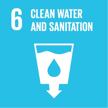About this project
The COVID-19 pandemic showed us the importance hygiene has in disease spread. WHO advised that reduction of chances of getting infected can be achieved by regularly washing our hands with soap and water. However, despite the easiness of the action, 3 billion people still do not have access to clean water and soap.
Awassa is an Ethiopian fast-growing city in the Southern Nations, Nationalities, and Peoples' Region (SNNPR). Currently, more than 390,000 people live in Awassa city, with a demographic growth rate of 4% per year due to internal growth and migration from rural areas with consequent problems of waste management and water pollution which impacts more and more on the environment and in particular on the homonymous lake on which the city rises, attracting local and international tourists (about 200,000 people visit Awassa every year). In addition, Lake Awassa has been put under stress by the biggest Ethiopian Industrial Park focused on textile production and absence of wastewater treatment plants. However, Awassa lake is still providing food to local population. The most important local dish is fried fish that is prepared by many small restaurants and hotels near the lake shore. The Waste Cooking Oil (WCO) is then thrown on the ground causing pollution of aquifers and, eventually, the lake. It has been calculated that 1 litre of contaminates up to 1 million litres of water causing the destruction of ecosystem’s flora and fauna.
In Awassa, the importance of having enough soap for hygiene practices can be strictly connected to the lake ecosystem’s health. The process, called saponification, converts oil into soap and alcohol in presence of caustic soda. This method has been used throughout centuries of history until industrial soap making. Still 50 years ago in Southern Italy, it was common to collect vegetable oil used in kitchen to make soap for the following year. The purpose of this project is to collect WCOs from the several restaurants and hotels in Awassa and fabricate soaps. The aim will be creating a social business focused on giving economic value to WCOs following a circular economy model and protecting the environment. The main actors and promoters of this initiative are the members of the “Awassa Young Volunteers” association. A group of 20 socially-committed young and local people, between 20 and 30 years old, involved in different activities for the least privileged of the community. The Volunteers are especially very active during the COVID-19 time and organised events for raising awareness and sensitizing the population on good hygiene practices and the risks of being contaminated. On behalf of Awassa Municipality, they provided, prepared and delivered food for the disadvantaged elderly people of the community.
During this project, the Awassa Young Volunteers will be in charge for oil collection, saponification and selling for shops or donating for people in need. The project will also make possible to start an income-generating activity able to employ job-seeking young people in the future.
Goals and Objectives
The project aims at contributing to the creation of a sustainable and income-generating activity for waste cooking oil recycling and soap production in Awassa, protecting the lake from oil pollution, building the capacities of local young people and raising awareness in the local community.
- Objective 1: to improve health by provisioning locally produced soap.
- Objective 2: to contribute to Awassa lake’s ecosystems protection.
- Objective 3: to start a social business able to generate income for local young people.
Expected result
- Avoid 1000 L of oil to contaminate up to 1000 Million L of water of the nearby lake.
- Production of 1250 kg of solid soap.
- Improved engagement and business skills of of 20 local young women and men.
- Promotion of both hygiene and environmental awareness through sale and distribution of locally produced soap.
Sustainable Development Goals
About me / organisation
Donato Patrissi
I arrived in Awassa in 2018 where I conducted part of my Master thesis on Environmental Engineering at ETH Zurich. Based on the research, together with SUPSI University, SAED NGO and Hawassa University, I developed, built and tested an appropriate technology on water disinfection. In collaboration with Awassa Aqueduct's Authorities, we implemented a pilot of the technology in a rural community.
My goal is to empower local people. For this reason, I organised workshops, trainings and theater events to promote good hygiene behavior.

